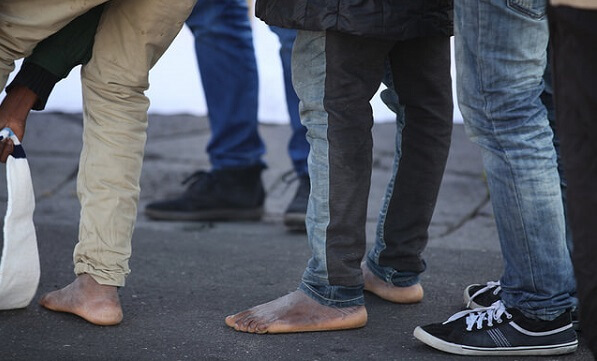The Spanish Servicio Jesuita a Migrantes (SJM)- has released a new report entitled “Sacar del Laberinto” focusing on the situation faced by refugees and migrants who arrive in the southern city of Melilla. The report presents the unique challenges faced in a city that they describe as geographically, administratively and normatively problematic.
Among the key concerns outlined in the report are; summary returns at the land border; peculiarities of operations of security forces in contiguous waters; returns of people that land on islets and rocks through the readmission agreement signed with Morocco in 1992. Further the report reveal various problems for migrants during their stay in Melilla; restriction of movement; and finally, the situation of unaccompanied foreign children and young people.
The report highlights problems of overcrowding in Migrant Temporary Stay Centres (CETI) hosting people for extended waiting periods, while vulnerable groups such as families with young children, religious minorities, and LGBTI people cannot be protected adequately in these centres. SJM recommends that those identified as being vulnerable must be transferred quickly so that they can access protection in more resourced facilities in the Peninsula.
The report also stresses that unaccompanied minors encounter specific difficulties in Melilla. In some cases, a lack of documents or inaccurate medical tests mean they are not recognised as children, while if recognised, deficiencies in care have been found in child protection centres. SJM also discusses the period for which families can be separated from their children while identity checks are carried out, and urges that it must be shortened.
Delays in Spain’s asylum procedure have received widespread criticism this month; in Madrid the Spanish Ombudsman is initiating ex officio action before the General Commissariat for Foreigners and Borders as a reaction to the severe delays. Since May 2018, those in need of international protection have been required to appear before the police station of Aluche to register their asylum application, however only 99 people applications are accepted per day. This policy has forced up to 200 people, including pregnant women, children and persons with medical conditions, to wait outside the station and sleep rough for several days in hope of getting an appointment.
After obtaining access to the police station and receiving a “Certificate of intention to apply for asylum” (Manifestación de voluntad de presentar solicitud de protección internacional), some have even then been informed that they must wait until December 2020 for their official appointment.
A joint press release by Spanish and French NGOs has called for prompt reform of the Dublin system with a view to alleviating pressure on the Spanish asylum system.
For further information:
- AIDA, Spain: Severe Delays in Registration of Asylum Applications, December 2018
- AIDA, Country Report Spain, 2017 Update, March 2018
- ECRE, Unaccompanied child refugees forced to sleep in police stations as no spaces in reception centres, September 2018
- ECRE, Undocumented immigrants regain the right to health, September 2018
Photo: (CC) International Federation of the Red Cross, April 2015
This article appeared in the ECRE Weekly Bulletin . You can subscribe to the Weekly Bulletin here.

